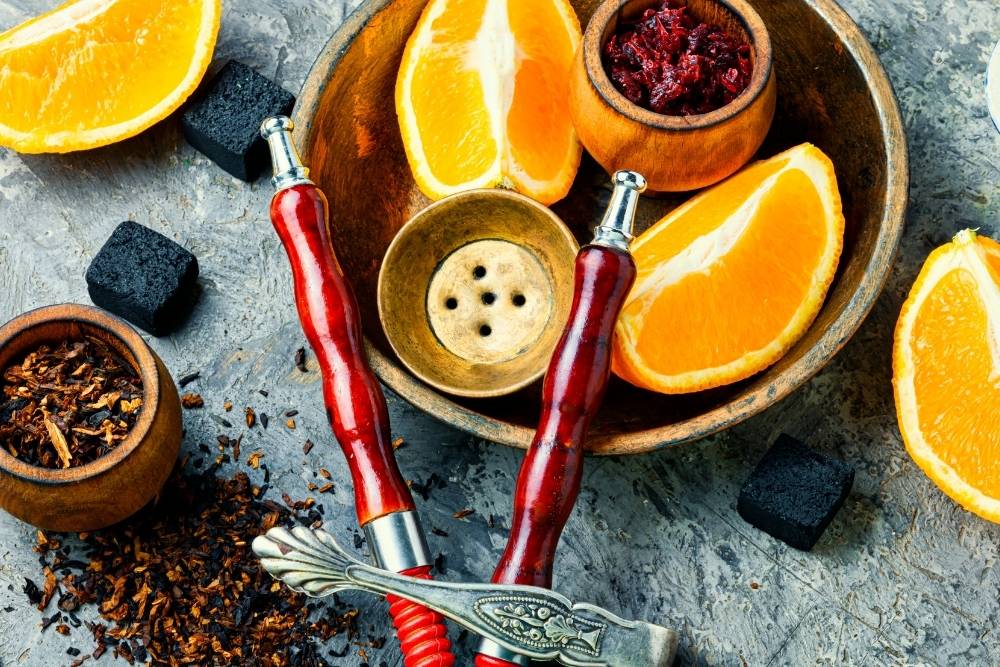Nargile, also known as hookah or shisha, is a traditional smoking device with deep cultural roots in the Middle East and beyond. Originating in India, it spread to the Middle East and has become a popular social activity. The nargile consists of a bowl, which holds the tobacco, usually flavored, a water base to cool and filter the smoke, and a hose for inhaling.
There are various flavors available, ranging from fruity options like apple, cherry, and watermelon, to more exotic blends like mint, rose, and jasmine. Some users also experiment with combining flavors to create unique experiences. Modern innovations include the introduction of herbal shisha, which is tobacco-free and often seen as a healthier alternative.
Content Suggestion: The Timeless Allure Of Hookah At Harab'be Cafe
Flavors and Innovations
Nargile, a beloved tradition, offers a rich tapestry of flavors. Enthusiasts relish in a spectrum ranging from classic fruits like apple and watermelon to more sophisticated and exotic blends such as mint, rose, and jasmine. These flavors aren't just about taste; they represent the cultural diversity and history of nargile.
In recent years, there's been a shift towards health-conscious options. Herbal shisha, devoid of tobacco, is gaining popularity, catering to a new generation of nargile users who are mindful about health impacts. These tobacco-free alternatives are made from a mix of herbs, molasses, and flavors, providing the same communal smoking experience without the health risks associated with tobacco.
The evolution of nargile doesn't stop at flavors. Technological advancements have introduced electronic hookahs, which vaporize liquid flavors. These devices, combining tradition with modern vaping technology, offer a cleaner, smoke-free experience while maintaining the essence of nargile culture.
The Social Fabric of Nargile Culture
At its core, nargile is more than just smoking; it's a social ritual. In the bustling cafes and tranquil lounges of the Middle East and beyond, nargile sessions are a common sight. These gatherings, often accompanied by aromatic teas or robust coffees, create an atmosphere of relaxation and camaraderie.
The act of sharing a nargile, with its single hose passed from person to person, symbolizes trust and equality among the participants. It's a practice deeply ingrained in the cultural fabric, representing hospitality and a sense of belonging. In many cultures, sharing a nargile is akin to breaking bread, an act that transcends mere socializing and enters the realm of communal bonding.
This communal aspect has also adapted to the modern world. Nargile lounges have become multicultural hubs, where people from different backgrounds come together, share stories, and enjoy the shared experience of nargile. This fusion of cultures around a nargile pot symbolizes the universal appeal of this ancient tradition, seamlessly blending the old with the new.
In conclusion, nargile culture is a vibrant and evolving tapestry, interweaving rich flavors, health-conscious innovations, and deep social connections. It's a tradition that honors its past while embracing the future, offering a unique window into the communal heart of various cultures.
Global Expansion
Recently, nargile has seen a surge in global popularity. This has led to a fusion of traditional methods with contemporary trends, such as electronic hookahs, catering to a diverse, international audience.
In summary, nargile culture is a rich blend of tradition, social bonding, and evolving practices. Its global appeal lies in its ability to adapt to modern tastes while maintaining its historical essence.
As we delve into the rich tapestry of nargile culture, embracing its diverse flavors and social significance, we invite you to experience this tradition firsthand at Harab'be Cafe. Nestled in the heart of Sultanahmet, Harab'be offers a perfect blend of tradition and modernity. Join us in our cozy ambiance, where the spirit of communal bonding and cultural diversity comes alive with every shared nargile. Discover the essence of nargile culture at Harab'be Cafe.


